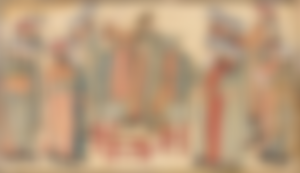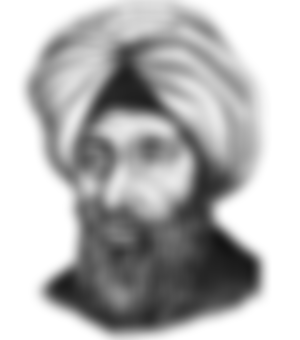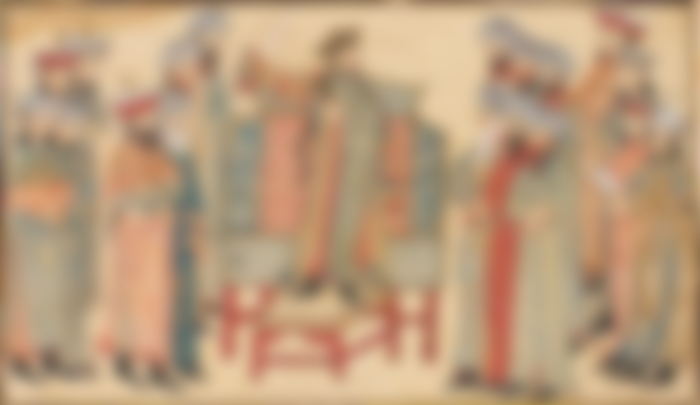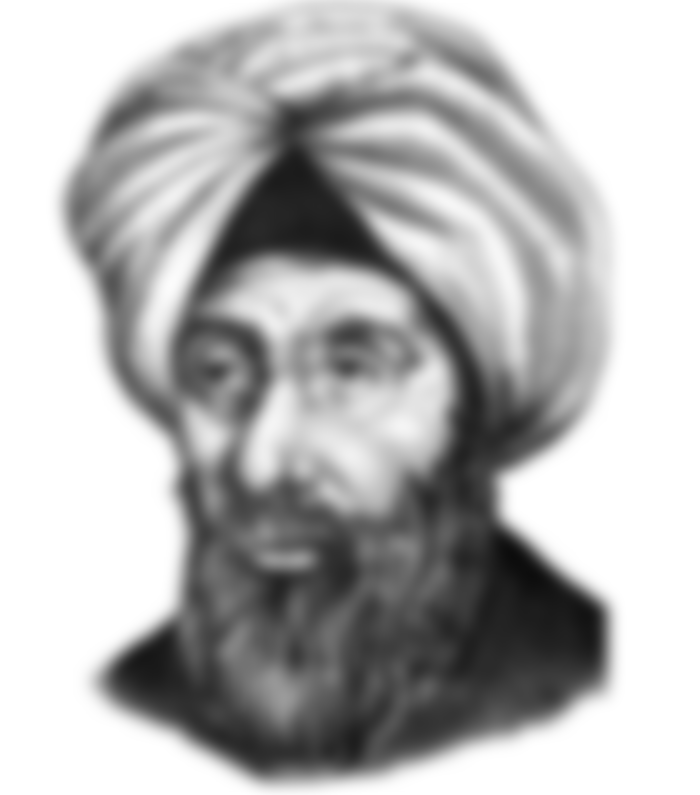Ibn al-Haytam, Latinized Alhazen (965-1040), was one of the greatest scholars of the Islamic world.

The author of a hundred works, he studied astronomy, mathematics, chemistry, medicine, music and physics, and in addition he wrote beautiful verses.
He was one of the first scientists to test the theory by performing experiments, and he was not afraid to challenge generally accepted opinions if the evidence did not support them.

He came to the most significant insights in the field of optics. It was he who solved the riddle of eye sight. Namely, the Greeks believed that our eye examined the outside world with some kind of invisible tentacles. Alhazen was the first to realize that this was not the case, but that light was created in bodies that shone, like the sun or the flame of a candle. He concluded that light travels from them to our eye and all around in straight lines and that objects that do not shine can be seen because the light of the Sun or some other luminous object is reflected from them into our eye.

To prove it, he made a small hole in the curtain in the darkened room, through which light entered. The light made an inverted copy of the outside world on the opposite wall of the room. He thus created the forerunner of the dark chamber ("camera obscura") and thus paved the way for the development of photography. Alhazen also studied the way light refracts in lenses and bounces off mirrors, and his insights have proven to be extremely important for inventions such as telescopes and microscopes.

In addition to all of Alhezen's talents mentioned, the one for acting should also be highlighted. At one point in his life, he was an adviser to Caliph al-Hakim, the ruler of Egypt. Although the powerful man was known as the protector of science and art, he was also a tyrant, and Alhazen lost sight of that detail.
The caliph boasted that he was able to regulate the Nile watercourse, that is, to construct a dam that would serve as protection against floods in rainy periods and at the same time provide enough water to irrigate the fields in times of drought.

Enthusiastic about the idea, the caliph did not skimp on funds to meet the ambitious goal. Alhazen, however, was mistaken - or rather, he underestimated the potential difficulties. It was only when he arrived at the construction site in Aswan that he realized that he did not have enough money, let alone manpower, to complete the huge task.

He realized something else: if he confessed to the caliph, his head would roll off his shoulder as you said "biscuit." He thought feverishly about what to do to stay alive. He came up with a brilliant idea of how to stay alive. he will pretend to be crazy! Namely, under Islamic law, it was forbidden to execute a lunatic. Unlike building a dam, it was a success - he pretended to be crazy for a full twelve years, until the caliph's death!





